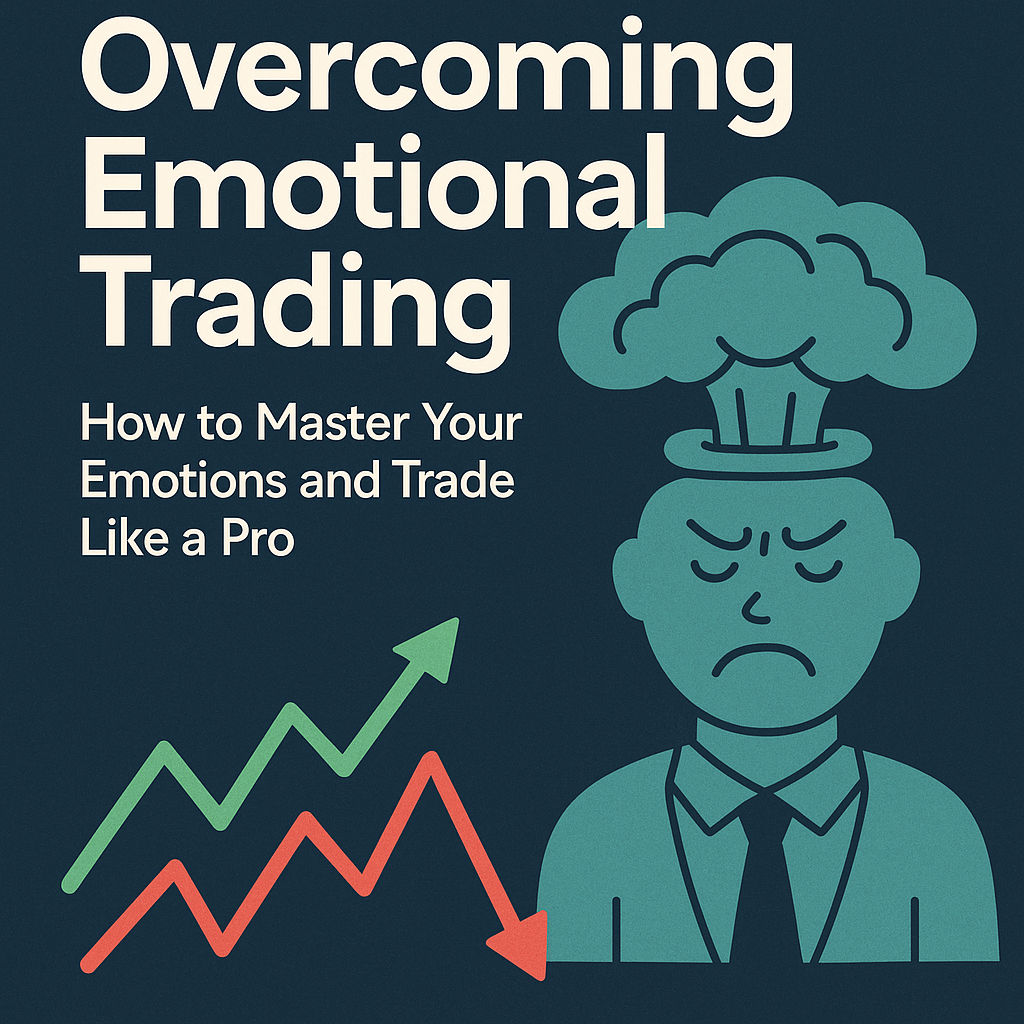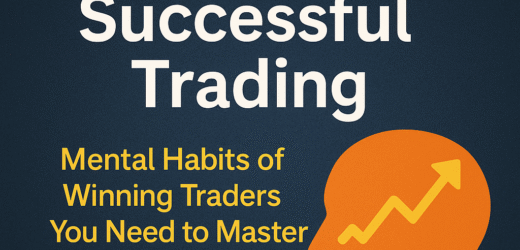Trading isn’t just a numbers game it’s a psychological battlefield. No matter how good your strategy is, if emotions like fear, greed, or frustration creep in, they can destroy your discipline and your account. Overcoming emotional trading is one of the most important skills a trader must develop to find consistency and success.
What Is Emotional Trading?
Emotional trading happens when you let feelings dictate decisions instead of logic and strategy. This can include acting out of panic, anger, or excitement rather than sticking to your trading plan.
Why Emotions Hurt Trading Performance
When emotion takes over, rational decision-making shuts down. You may:
- Chase trades due to FOMO
- Avoid placing stops due to fear
- Revenge trade after a loss
These decisions often lead to larger losses, a breakdown in confidence, and an inconsistent trading record.
Signs You’re Trading Emotionally
Revenge Trading After Losses
One of the most common emotional traps is trying to “win back” your money after a losing trade. This often results in forced trades with poor setups, leading to even greater losses.
Overtrading and Impulsive Decisions
Placing multiple trades without clear setups is a sign of emotional instability. This typically stems from boredom, frustration, or desperation.
Fear of Missing Out (FOMO) and Panic Selling
FOMO causes traders to enter late, after a move has already occurred. Panic selling does the opposite — closing a trade early due to fear, even when the plan is still valid.
Psychological Triggers Behind Emotional Trading
Ego and Attachment to Being Right
Many traders struggle because they equate being wrong with personal failure. This ego attachment leads to holding onto losing trades too long or refusing to admit mistakes.
Loss Aversion and Recency Bias
The pain of loss weighs more heavily than the joy of gains. After recent losses, traders may hesitate or become overly cautious, missing good opportunities.
Overconfidence After Wins
Winning can also be dangerous. After a few successful trades, you may take larger risks or abandon your strategy, thinking you’ve “figured it out.”
The Cost of Emotional Trading
Capital Losses and Account Blow-Ups
Trading without emotional control can quickly lead to blown accounts. Overleveraging, not cutting losses, or revenge trading compounds risk.
Damage to Confidence and Decision-Making
Each emotionally driven mistake chips away at your self-trust. Over time, this leads to hesitation, inconsistency, and fear of execution even when setups are strong.
Strategies for Overcoming Emotional Trading
Develop a Rule-Based Trading System
Clear rules reduce uncertainty and emotional decision-making. Create a trading system with pre-defined entries, exits, stop-losses, and risk-per-trade.
Use Pre-Defined Entry, Exit, and Stop Rules
Know exactly when you’re getting in, when you’ll get out, and how much you’re risking before placing the trade.
Trade Smaller Size to Reduce Stress
When your position size is too big, emotions run high. Reduce trade size until your decisions feel manageable and you’re thinking clearly.
Emotional Regulation Techniques for Traders
Deep Breathing and Mindfulness Exercises
Practices like box breathing (4-4-4-4) and meditation help slow down reactive thoughts and bring awareness back to your goals.
Journaling Emotions Before and After Trades
Write down how you feel before placing a trade and after it’s over. This helps identify emotional patterns and reduce impulsivity.
Taking Breaks After Losing Streaks
If you’re emotionally charged, step away. The market will still be there tomorrow. Pausing prevents compounding emotional errors.
Building a Long-Term Mindset
Focus on Probabilities Over Outcomes
No trade is guaranteed. Accept that some will win and some will lose. Stay focused on your edge playing out over time.
Embrace Losses as Feedback, Not Failure
Every trade is a learning opportunity. Losses are not failures, they’re feedback that can refine your edge and improve your discipline..
Creating a Trading Routine That Minimizes Emotion
Morning Rituals to Boost Clarity
Start each day with a calm, focused routine, review your strategy, check news, and mentally rehearse how you’ll respond to different outcomes.
Scheduled Reviews and Journals
End your day by journaling setups, results, and emotions. This builds awareness and encourages consistent growth.
FAQs on Overcoming Emotional Trading
How do I stop being emotional in trades?
Build a system, reduce risk, and cultivate awareness through journaling and reflection. Detach emotionally from individual outcomes.
What’s the best way to recover after a big loss?
Pause. Review the trade objectively. Lower size on your next trades and regain rhythm slowly. Don’t chase the loss.
Can meditation help traders?
Yes. Meditation increases focus, reduces impulsiveness, and improves reaction to market stressors.
Why do I trade well on demo but fail live?
The emotional pressure of real money activates different parts of the brain. You need to train emotional control, not just technical skill.
Should I stop trading after emotional decisions?
Yes, take a break. Recenter yourself, review your journal, and return with clarity. Trading emotionally only leads to poor outcomes.
How do professionals manage their emotions?
They follow routines, trade small during uncertain times, review their performance constantly, and accept losses as part of the game.
In the end, the greatest battle isn’t with the market it’s with yourself. Overcoming emotional trading isn’t a one-time fix. It’s a daily discipline, a mindset, and a commitment to trade with clarity, not chaos.
Learn to master your emotions, and you’ll master your edge.




